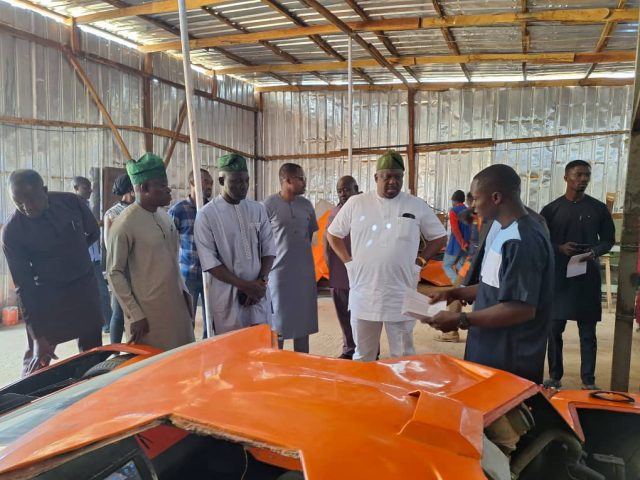Professor (Assoc.) Elias Nankap Lamle
Centre for Conflict Management and Peace Studies,
University of Jos.
Introduction: In Nigeria, like many developing countries, the government’s efforts to subsidize farm inputs as a means to support food production often face significant challenges. Middlemen exploit the system by purchasing subsidized implements and reselling them at inflated prices, undermining the intended benefits for farmers and the agricultural sector as a whole. However, Plateau State can stand out as a beacon of innovation in overcoming the influence of these middlemen, employing strategies to ensure that subsidized inputs reach farmers directly and efficiently. This essay explores the approaches that can be adopted by the Plateau State government to counteract the interference of middlemen and promote sustainable agricultural development.
Strengthening Supply Chains: Plateau State recognized the critical role of efficient supply chains in ensuring that subsidized farm inputs reach the intended beneficiaries. The government is working to establish robust procurement and distribution networks, partnering with reputable suppliers and local cooperatives to streamline the process. By minimizing intermediaries and directly engaging with input suppliers, Plateau State can reduce the opportunities for middlemen to exploit the system for personal gain.
Digital Solutions: Embracing technology can play a pivotal role in Plateau State’s efforts to circumvent the influence of middlemen. The government should implement digital platforms for input procurement and distribution, leveraging mobile applications and online portals to facilitate transparent transactions. Farmers will register on digital databases, allowing for targeted distribution of subsidized inputs based on genuine need and ensuring accountability throughout the supply chain. By embracing digital solutions, Plateau State can minimize opportunities for middlemen to manipulate or disrupt the distribution process.
Community Empowerment: Plateau State recognizes that empowering local communities and farmers is essential for sustaining efforts to overcome the influence of middlemen. The government should prioritize farmer education and capacity-building initiatives, providing training on sustainable agricultural practices, financial literacy, and entrepreneurship. By equipping farmers with the knowledge and skills to maximize the benefits of subsidized inputs, the Plateau State Government will reduce their reliance on middlemen and foster greater self-reliance within rural communities.
Enforcement of Regulations: Plateau State Government should adopt a zero-tolerance approach to corruption and malpractice in the distribution of subsidized farm inputs. The government should implement stringent regulatory measures and enforcement mechanisms to deter middlemen from engaging in illicit activities. Monitoring and evaluation systems should be put in place to track the movement of inputs and detect any discrepancies or unauthorized diversions. By holding accountable those found guilty of exploiting the system, Plateau State can send a clear message that such behavior would not be tolerated, thus discouraging middlemen from sabotaging the government’s efforts.
Public Awareness and Participation: The Plateau State government should recognize the importance of public awareness and participation in countering the influence of middlemen. Extensive outreach campaigns should be conducted to educate farmers about their rights and entitlements under the subsidy program, as well as the consequences of engaging with middlemen. Community meetings, radio broadcasts, and informational materials will be utilized to disseminate relevant information and foster a sense of ownership among farmers. By mobilizing public support and participation, Plateau State can strengthen the resilience of its agricultural sector against external disruptions.
Conclusion: Plateau State’s Government’s success in overcoming the influence of middlemen in the distribution of subsidized farm inputs will serve as a model for other regions facing similar challenges. By prioritizing transparency, accountability, and community empowerment, the state government will be able to ensure that the benefits of agricultural subsidies reach the intended beneficiaries directly. Through strategic interventions and innovative approaches, the Plateau State Government can demonstrate its commitment to promoting sustainable agricultural development and improving the livelihoods of smallholder farmers.









